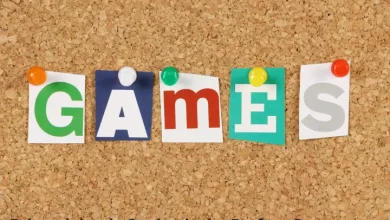Exploring the Psychology of Milhar Addiction in Jogo do Bicho

Introduction
Jogo do Bicho, also known as “the animal game,” is a popular form of illegal gambling in Brazil. It involves betting on a four-digit number, known as a milhar, that corresponds to an animal.
Milhar addiction is a serious problem in Brazil, with many individuals becoming addicted to the thrill of the game and the potential for financial gain. Understanding the psychology of addiction is crucial in addressing this issue and helping those who struggle with milhar addiction.
Understanding the Psychology of Addiction
Addiction is a complex condition that involves compulsive behavior despite negative consequences. It is characterized by a strong desire to engage in a particular behavior, even when it is harmful. Reinforcement and reward play a significant role in addiction, as individuals continue to engage in the behavior in order to experience the pleasurable effects.
Genetics and environment also play a role in addiction, with certain individuals being more susceptible to addiction due to their genetic makeup or environmental factors such as stress or trauma.
The Role of Dopamine in Milhar Addiction
Dopamine is a neurotransmitter that plays a key role in the brain’s reward system. It is released when we engage in pleasurable activities, such as eating or having sex, and reinforces the behavior by creating a sense of pleasure and satisfaction.
Milhar addiction can affect dopamine levels in the brain, with individuals experiencing a rush of dopamine when they win a bet. This reinforces the behavior and can lead to compulsive gambling.
The Impact of Milhar Addiction on Mental Health
Addiction can have a significant impact on mental health, with many individuals experiencing anxiety, depression, and other mental health issues as a result of their addiction. Milhar addiction can exacerbate these problems, as individuals may experience financial strain and social isolation as a result of their gambling.
It is important for individuals struggling with milhar addiction to seek help for both their addiction and any co-occurring mental health issues.
The Connection between Milhar Addiction and Gambling Disorder
Gambling disorder is a recognized mental health condition characterized by a persistent and recurrent pattern of gambling behavior that leads to significant impairment or distress.
Milhar addiction shares many similarities with gambling disorder, including the compulsive nature of the behavior and the potential for financial harm. However, milhar addiction is unique in its cultural significance in Brazil and the specific ways in which it is played.
The Influence of Social and Cultural Factors on Milhar Addiction
Social and cultural factors can play a significant role in addiction, with certain cultures and communities having higher rates of addiction than others. In the case of milhar addiction, the game is deeply ingrained in Brazilian culture and is often seen as a way to escape poverty and financial hardship.
The social and cultural significance of the game can make it difficult for individuals to seek help for their addiction, as they may feel ashamed or stigmatized.
The Relationship between Milhar Addiction and Financial Strain
Financial strain can contribute to addiction, as individuals may turn to gambling as a way to alleviate their financial problems. Milhar addiction can exacerbate financial strain, as individuals may continue to gamble despite losing money and experiencing negative consequences.
It is important for individuals struggling with milhar addiction to seek help for their addiction and to address any underlying financial issues.
Coping Mechanisms for Milhar Addiction
There are a variety of coping mechanisms that can help individuals manage their addiction, including therapy, support groups, and self-help strategies.
It is important for individuals to identify their triggers and develop healthy coping mechanisms to replace their addictive behavior. Seeking professional help is also crucial in managing addiction and addressing any underlying mental health issues.
Treatment Options for Milhar Addiction
There are a variety of treatment options available for milhar addiction, including cognitive-behavioral therapy, medication-assisted treatment, and support groups. The effectiveness of different treatment approaches can vary depending on the individual and their specific needs.
It is important for individuals to work with a qualified healthcare professional to develop a personalized treatment plan.
Conclusion and Future Directions for Research on Milhar Addiction
Milhar addiction is a serious problem in Brazil that requires a comprehensive approach to address. Understanding the psychology of addiction, the role of dopamine in milhar addiction, and the impact of social and cultural factors on addiction can help healthcare professionals develop effective treatment plans.
Further research is needed to better understand the specific factors that contribute to milhar addiction and to develop more effective treatment options. By working together, we can help individuals struggling with milhar addiction overcome their addiction and improve their overall well-being.






